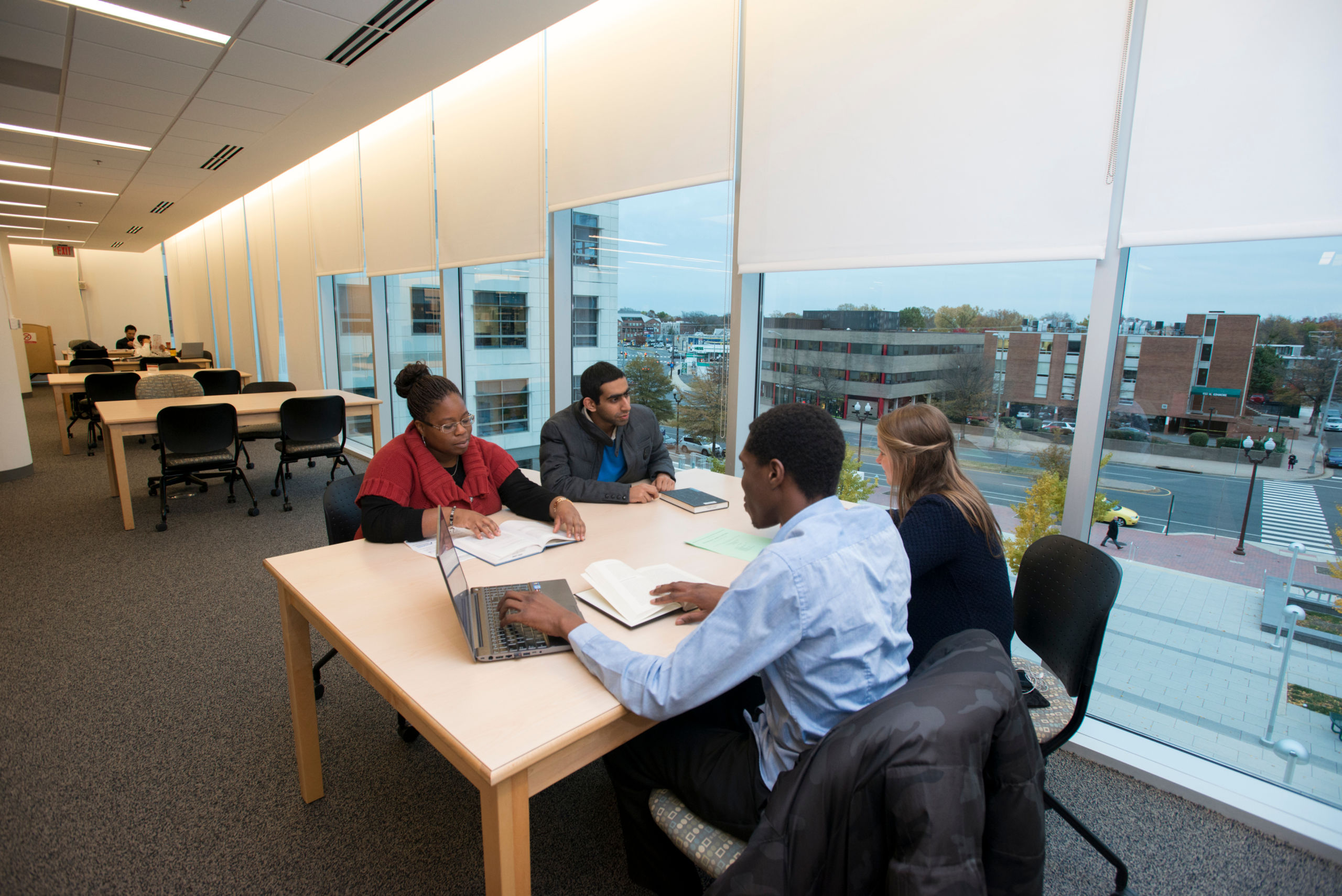Photo by Alexis Glenn/Creative Services/George Mason UniversityBy: Taylor Lucas, a Mason graduate student in Public Administration at the Schar School of Policy and Government and our center’s Graduate Student Assistant
“My mission in life is not merely to survive, but to thrive; and to do so with some passion, some compassion, some humor, and some style.” – Maya Angelou
As graduate students, using our resources and learning the most we can about ourselves will allow us to thrive – both personally and professionally. An important part of that is discovering our personal strengths and learning how to use them well.
I have often found myself concerned about my future or the unknown. Ironically, after taking the CliftonStrengths assessment, I learned that the first of my five strengths is futuristic. Futuristic individuals are inspired by the future and what could be, and they also energize others with their visions of the future.
Learning about my top five strengths has not only assisted me in knowing more about myself, but it has allowed me to utilize my strengths to my advantage. I now know what sets me apart from others who may be applying for the same job as me. I also know how to better advocate for myself during interviews or testimonials. All graduate students can learn how to thrive by discovering and using our strengths.
Graduate Student Well-Being
Thriving – in our graduate studies, our work, and our personal lives – involves improving the quality of our overall well-being. In this graduate students’ well-being report, Galen Panger states that levels of subjective well-being have been found to predict future health, mortality, productivity, and income.
At the University of California, Berkeley, Panger and his colleagues want to enable graduate students to do their best work. They have noticed that balanced, happy students are more productive, creative, collaborative, better at long-term goal pursuit, more physically and psychologically resilient, and more likely to find employment than others.
When we are able to find passion in what we do, we are more likely going to thrive at what we do. Even in challenging circumstances, we will be motivated to work hard if we know that there is purpose and meaning in what we accomplish. As a first-generation undergraduate and graduate student, I am very motivated and aim to use my strengths to become a better person overall. I want to lead as an example to my younger brother and show other potential first-generation students that it is possible to thrive personally and professionally even if you are the first to do so within your family.
How to Thrive as a Graduate StudentAlong with taking the
CliftonStrengths assessment to determine your top five strengths, here are a few examples of strategies that will help you learn more about yourself and how you can thrive:
- Identify your own strengths and weaknesses.
- Ask people you trust for feedback.
- Create a life vision and mission.
- Fill out self-exploration questionnaires.
- Create a bucket list (a list of goals to achieve during your lifetime).
As we approach our master’s degree, we are searching for careers that follow our area of study and make us happy. We also want to live a healthy life where we feel comfortable within our environment. Together, let’s learn ourselves and discover what makes us happy so that we can thrive and develop personal and professional development.
Additional Resources
- Discover your own strengths through Mason’s Strengths.
- Learn more about Mason’s Graduate and Professional Student Association.
- Enroll in Mason’s Resilience Badge Program to strengthen your resilience and overall well-being.
- Check out Montana State University’s Graduate Student Well-Being Initiative.
Write one of these Thriving Together Series features! We’re looking for contributions on all topics related to well-being. Read other Thriving Together Series articles here and contact us at cwb@gmu.edu for guidelines. Thank you for helping our Mason community thrive together online!






















